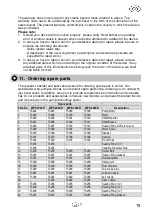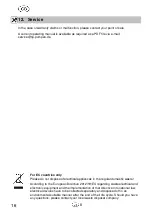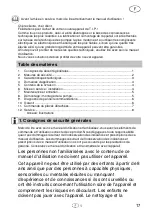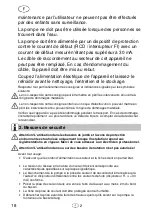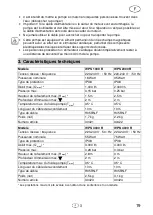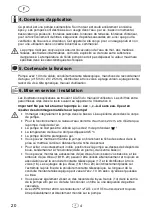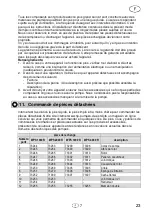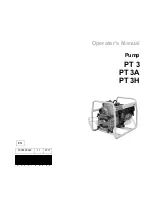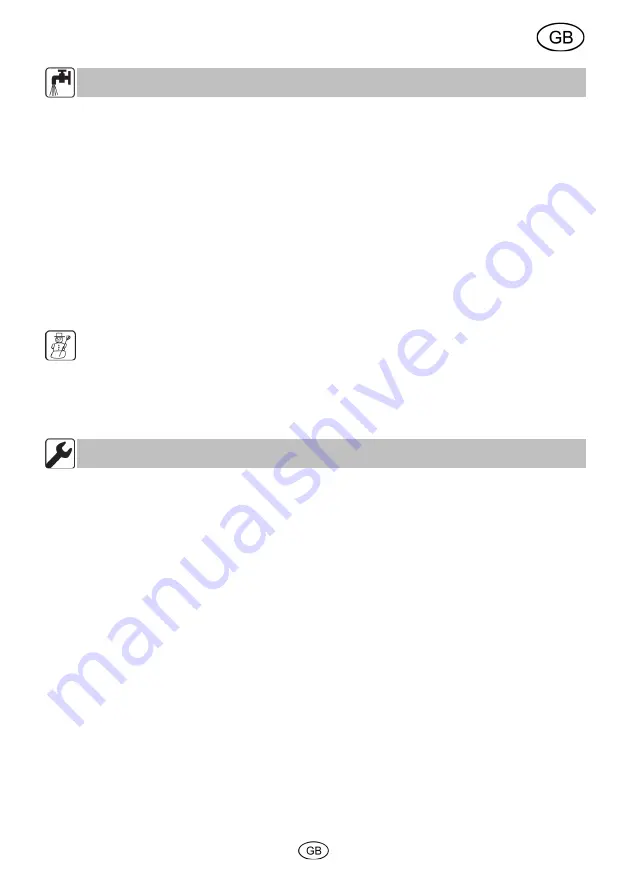
5
7. Maintenance and care
To significantly extend the service life of your pump, and to ensure trouble-free function,
we recommend regular maintenance and cleaning. With a few hand movements every
user can easily execute all maintenance tasks. For this, the pump must be dismounted, as
described in chapter 8. All parts can be cleaned with a non-metallic brush and a neutral
cleaner. Ensure that the cleaning agent does not get into the pond water. Carefully rinse
off all cleaned parts with clean tap water, before putting the pump back together and
placing it in service. If the pump is heavily calcified, you can place the run unit and the
motor block in a descaling solution for stainless steel parts. In this regard comply with the
use instructions provided with the descaling agent.
7.1.
Maintenance intervals
The time intervals for the required maintenance task (complete cleaning) to a great extent
are based on the level of pond water contamination. Select the time intervals for cleaning
accordingly. If, when performing maintenance tasks, you determine that there are defects
or wear, replace the parts in question (see ordering spare parts).
7.2.
Winter - maintenance
•
Protect your pump from freezing!
•
If there is danger of freezing, take the pump out of your garden pond.
•
Completely clean the pump as specified in the instructions.
•
Store the pump over winter in a frost-free location.
8. Dismounting / mounting the pump
1. Comply with the safety measures.
Disconnect the pump from the mains supply!
2. Press the sides of the front cover (9) and pull it off of the pump (Fig. 1).
3. Pull the filter sponge out of the filter cover.
4. Turn the inflow cover (6) anticlockwise approx. 20° (Fig. 2).
5. Pull the inflow cover (6) out of the pump.
6. Pull the rotor with rotor axle and bearing (4, 3 and 2) out of the pump.
Note: For technical reasons, the impeller and the magnet can be turned against each
other by a certain angle.
7. Mount the pump as follows:
7.1. Insert the rear bearing (4) and the rotor axle (2). Make sure that they are perfectly
seated in the bearing. Then insert the rotor (3) into the pump and attach the front
bearing to the rotor axle.
7.2. Insert the inflow cover (6) and turn clockwise to the stop.
7.3. Reattach the front cover (9) to the pump body.
For trouble-free operation, repeat this procedure depending on the degree of fouling and
duration of operation.
13
Summary of Contents for WPS 1000 R
Page 67: ...1 T I P 1 1 2 2 3 3 4 3 5 4 6 4 7 5 8 6 9 6 10 7 11 7 12 8 1 8 65...
Page 68: ...2 RCD FI 30 mA 8 2 30 mA 2 m 66...
Page 71: ...5 16 18 19 20 10 cm 14 WPS 1000 2000 1 2 AG 3 4 IG 15 3 7 8 7 1 7 2 69...
Page 72: ...6 8 1 2 9 1 3 4 6 20 2 5 6 6 4 3 2 7 7 1 4 2 3 7 2 6 7 3 9 9 70...
Page 73: ...7 10 vis major a 1 2 3 11 www tip pumpen de 71...

















